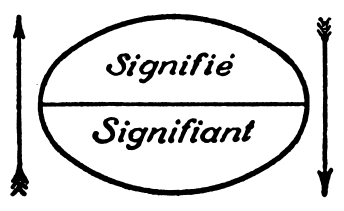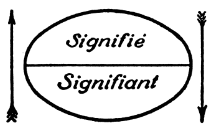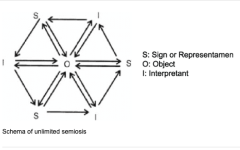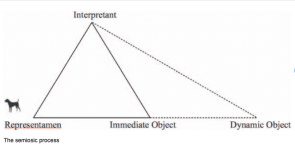You are using an out of date browser. It may not display this or other websites correctly.
You should upgrade or use an alternative browser.
You should upgrade or use an alternative browser.
THE SEMIOTIC WOUND
- Thread starter version
- Start date
-
- Tags
- a georges bataille erotic deck a sort of cross between archery and rugby barthes simpson blood on craner's claw eating noodles surrounded by death everyone loves their own brand go complain to momma luka vs. kushner sufi's revolution tea goes to bat for reza trashing the booker longlist welsh rock 'n' roll
version
Well-known member
Looks like a sort of cross between archery and rugby.
One for @DLaurent's 'Philosophers and Diagrams' thread.
version
Well-known member
I first happened upon this stuff via Baudrillard (brilliant) then Barthes (boring) and most recently in a Jacques Dupin review - that's where the title's from - and Levi-Strauss' introduction to Marcel Mauss.
It makes sense, but it's one of those things where once it's in your head it's hard to shake off. Are there competing models? I've only ever heard people talking in either these terms or not.
It makes sense, but it's one of those things where once it's in your head it's hard to shake off. Are there competing models? I've only ever heard people talking in either these terms or not.
william_kent
Well-known member
Barthes (boring)
I'll take exception to that - in Mythologies the chapter on Romans in films is "laugh out loud", lol
version
Well-known member
Actually, I lie. The first I ever heard of a 'floating signifier' was someone referring to the titular V. of Pynchon's novel as such. It was that crazy bald guy who was always smoking cigars and hocking phlegm while talking about astrology who ended up having a meltdown on Twitter and ranting about his ex-girlfriend:
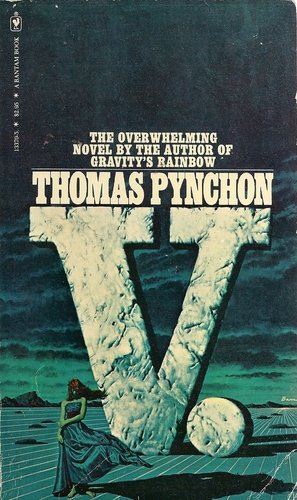
 cultural-discourse.com
cultural-discourse.com
I think that guy's actually thanked in my copy of The Agony of Power, although he's listed as 'John Ebert' rather than 'John David Ebert'. This was the kind of thing he was tweeting when he had his funny turn:
"On the one hand, the letter V may be a floating signifier in the narrative, where it can signify all sorts of things (its meaning, therefore, cannot be precisely pinned down), but on the other, the woman V herself, as an image, actually is a Transcendental Signified: namely, the Muse of Western Civilization, who has gone by many names."

On Thomas Pynchon's First Novel "V." - Cultural Discourse
A Look Back at Thomas Pynchon’s V. An Essay by John David Ebert I. Thomas Pynchon’s 1963 first novel V. is not so much a novel as a series of short novels held together by hinges: the book is composed of 17 chapters (or 16 + an epilogue), seven of which are short novels having […]
I think that guy's actually thanked in my copy of The Agony of Power, although he's listed as 'John Ebert' rather than 'John David Ebert'. This was the kind of thing he was tweeting when he had his funny turn:
"If you don't like pussy, then you can go elsewhere! This is all about men who like pussy. If you don't, go complain to momma!"
version
Well-known member
I'll take exception to that - in Mythologies the chapter on Romans in films is "laugh out loud", lol
I really didn't like that book. Everything he said seemed either obvious or pointless. The only bit that stood out was him talking about someone's hair...
"The haircut, for example, half shorn, devoid of affectation and above all of definite shape, is without doubt trying to achieve a style completely outside the bounds of art and even of technique, a sort of zero degree of haircut."
william_kent
Well-known member
I really didn't like that book. Everything he said seemed either obvious or pointless. The only bit that stood out was him talking about someone's hair...
"The haircut, for example, half shorn, devoid of affectation and above all of definite shape, is without doubt trying to achieve a style completely outside the bounds of art and even of technique, a sort of zero degree of haircut."
isn't that from the "Romans in film chapter" though?
and it only seems obvious because he said it first, and everyone else on the "continent" copied
version
Well-known member
isn't that from the Romans in film chapter though?
and it only seems obvious because he said it first, and everyone on the "continent" copied
Can't remember, I just quoted myself from the Barthes thread.
Mr. Tea
Let's Talk About Ceps
You can actually imagine a Pynchon character saying this, can't you?"If you don't like pussy, then you can go elsewhere! This is all about men who like pussy. If you don't, go complain to momma."
version
Well-known member
You can actually imagine a Pynchon character saying this, can't you?
It's what @kid charlemagne said when someone complained about his relationships thread.
Mr. Tea
Let's Talk About Ceps
"Ja, ja, ja, ja! In Prussia they never eat pussy...It's what @kid charlemagne said when someone complained about his relationships thread.
(Paging @malelesbian...)
version
Well-known member
We could link this thread up with 'Will the Objects Win?' and consider whether signified and signifier are in competition, are they trying to outbreed one another? Also, whether objects are aiming for homogeneity, like Burroughs says about the industrial revolution being a virus revolution producing the identical, whilst signifiers are aiming for heterogeneity, endless novelty.
william_kent
Well-known member

"The information of the message is only reduced by the addressee when he selects a definite interpretation"
Umberto Eco, A Theory of Semiotics, 1974
Mr. Tea
Let's Talk About Ceps
This from the man who found Cyclonopedia "absolute waffle."We could link this thread up with 'Will the Objects Win?' and consider whether signified and signifiers are in competition, are they trying to outbreed one another?
version
Well-known member
This from the man who found Cyclonopedia "absolute waffle."
It makes more sense when it's your own waffle.
william_kent
Well-known member
version
Well-known member
and it only seems obvious because he said it first, and everyone else on the "continent" copied
Fair point.

